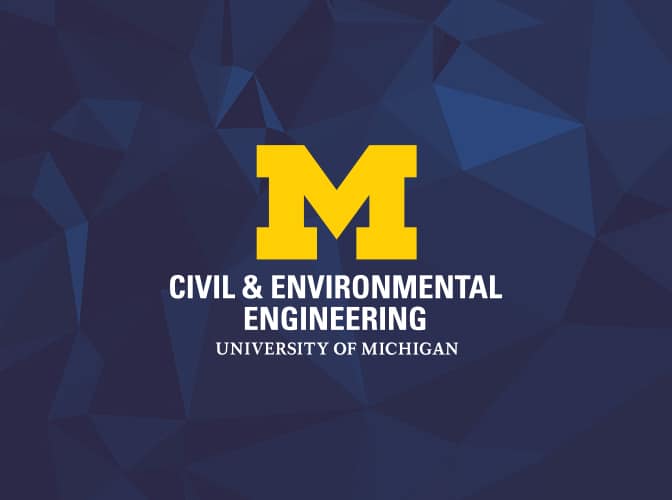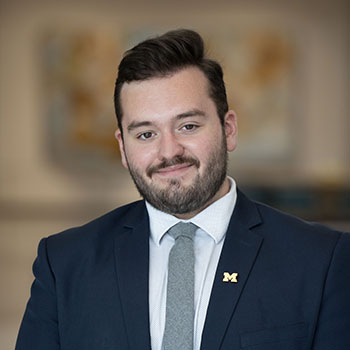
Deb Niemeier Emphasizes Social Justice During Richart Lecture
Deb A. Niemeier presented the annual Frank E. Richart Jr. Distinguished Lecture on Monday, April 2 in the Iacocca Auditorium in the GG Brown Building.

Deb A. Niemeier presented the annual Frank E. Richart Jr. Distinguished Lecture on Monday, April 2 in the Iacocca Auditorium in the GG Brown Building.
Deb A. Niemeier presented the annual Frank E. Richart Jr. Distinguished Lecture on Monday, April 2 in the Iacocca Auditorium in the GG Brown building. Niemeier is a Professor at the Civil and Environmental Engineering department and the School of Education at the University of California, Davis.
Niemeier’s work at UC Davis is focused on integrating models for estimating mobile source emissions with transportation modeling. Her primary research interest has been developing highly accurate, accessible processes and emissions modeling and travel behavior models that can be used in the public sector.
Niemeier’s lecture was titled “Justice, Engineering and Infrastructure.” She spoke about the challenges for both the present and the future practices of engineering. Will we ensure that the benefits of smart cities are shared with marginalized communities? Will we be able to deploy crowdsourced data collection to better democratize infrastructure investment and maintenance? “The world is changing much faster than we, as educators, are changing. We are moving too slowly,” said Niemeier.
She discussed how the engineering practice and culture is client-focused, despite the fact that some infrastructure improvements not only do not serve the common good, but can also actively harm particular populations.
The overall theme of the lecture was the need for a more critically aware stance by engineers in the role of social justice. Can the field develop a higher level of social responsiveness?
“We as educators, don’t make enough time and enough effort teaching students the kinds of moral skills that they actually need in a complex world. This allows problems in engineering to persist, because we haven’t given students the moral inquiry skills to examine what is right,” says Niemeier.
Niemeier suggested that making small changes in curriculum can have big impacts. Allowing students to make mistakes, emphasizing the importance of moral inquiry and placing those inquiries into a global setting are all ways educators can begin to shift the field and “create good human beings.”
“There are small ways we can change the way we educate students that can make very big shifts from how students emerge from our programs. There are easy changes we can make whose effects can be profound,” says Niemeier.
Dr. Niemeier was elected to the National Academy of Engineering in 2017. She has served as chair of the UC Davis civil engineering department, as well as the Director of the John Muir Institute and Associate Vice Chancellor in the Office of Research at UC Davis. She has received a number of awards including the Guggenheim Fellowship, the Aldo Leopold Leadership Award, the Chancellor’s Fellow Award, and an NSF CAREER award.
The annual Frank E. Richart Jr. lecture is named in honor of Professor Richart, whose long and distinguished career was highlighted by excellence in teaching, research and service to the University of Michigan.
Richart served the University of Michigan Department of Civil Engineering for twenty-four years, from 1962 to 1986. He was the department chair through 1969 and in 1977 he was named the W.J. Emmons Distinguished Professor of Civil Engineering. Richart passed away in 1994. He is survived by his wife, Elizabeth “Betty” Richart.

Marketing Communications Specialist
Department of Civil and Environmental Engineering